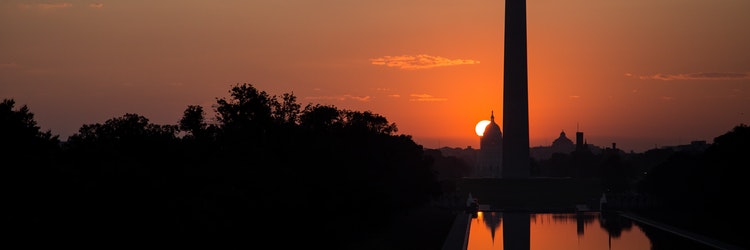New Washington, D.C., Airbnb law goes into effect October 1
- Oct 2, 2019 | Jennifer Sokolowsky

Update 11.4.2019: A new law that places restrictions on short-term rentals in Washington, D.C., has finally taken effect, nearly a year after it was passed.
The Washington, D.C., City Council passed the new legislation unanimously last year. And although Mayor Muriel Bowser declined to sign it, citing questions about its constitutionality, she allowed it to become law without her signature.
Under the ordinance, short-term rental operators must obtain city permits and hosts may only rent out their primary residence, not second or third homes. Hosts can only offer short-term rentals for up to 90 days a year when they’re not present. The rules also prohibit tenants from renting out their units as vacation rentals. Fines for violating the law start at $500 and go up to $6,000.
However, until recently, zoning laws that made short-term rentals illegal in most residential neighborhoods prevented full enforcement of the new law.
When the council passed the short-term rental bill, it requested that the Zoning Commission change the zoning code to allow short-term rentals. The Zoning Commission agreed to make the change, but first asked the Office of Planning for a report offering guidance on vacation rentals.
The planning office took until August 30 of this year to release the report — a source of irritation for Council Chairman Phil Mendelson. On October 24, the Zoning Commission approved emergency rules legalizing short-term rentals in residential neighborhoods, allowing the new law to be enforced.
However, it may take months for the city to be ready to issue short-term rental licenses. The Department of Consumer and Regulatory Affairs (DCRA), which governs rentals, has yet to outline compliance procedure or hire staffers. City government has said only that it would create implementation rules “in the coming days,” and then grant a 90-day grace period before enforcing the law.
Along with the provisions of the new law, Washington, D.C., short-term rental hosts are also required to collect District sales tax on accommodations from guests and pass it on to tax authorities. Both Airbnb and HomeAway collect this tax on behalf of their hosts, but hosts who do not use either of these platforms are required to collect sales taxes themselves.
All short-term rental hosts are required to register for tax collection with the D.C. Office of Tax and Revenue and file regular sales tax returns. MyLodgeTax can help Washington, D.C., short-term rental hosts comply with their sales tax obligations.
If you have tax questions related to vacation rental properties, drop us a line and we’ll get back to you with answers.
Washington, D.C., Airbnb rentals had a record summer. Between Memorial Day and Labor Day, 175,700 Airbnb users booked stays in D.C., the company said.










